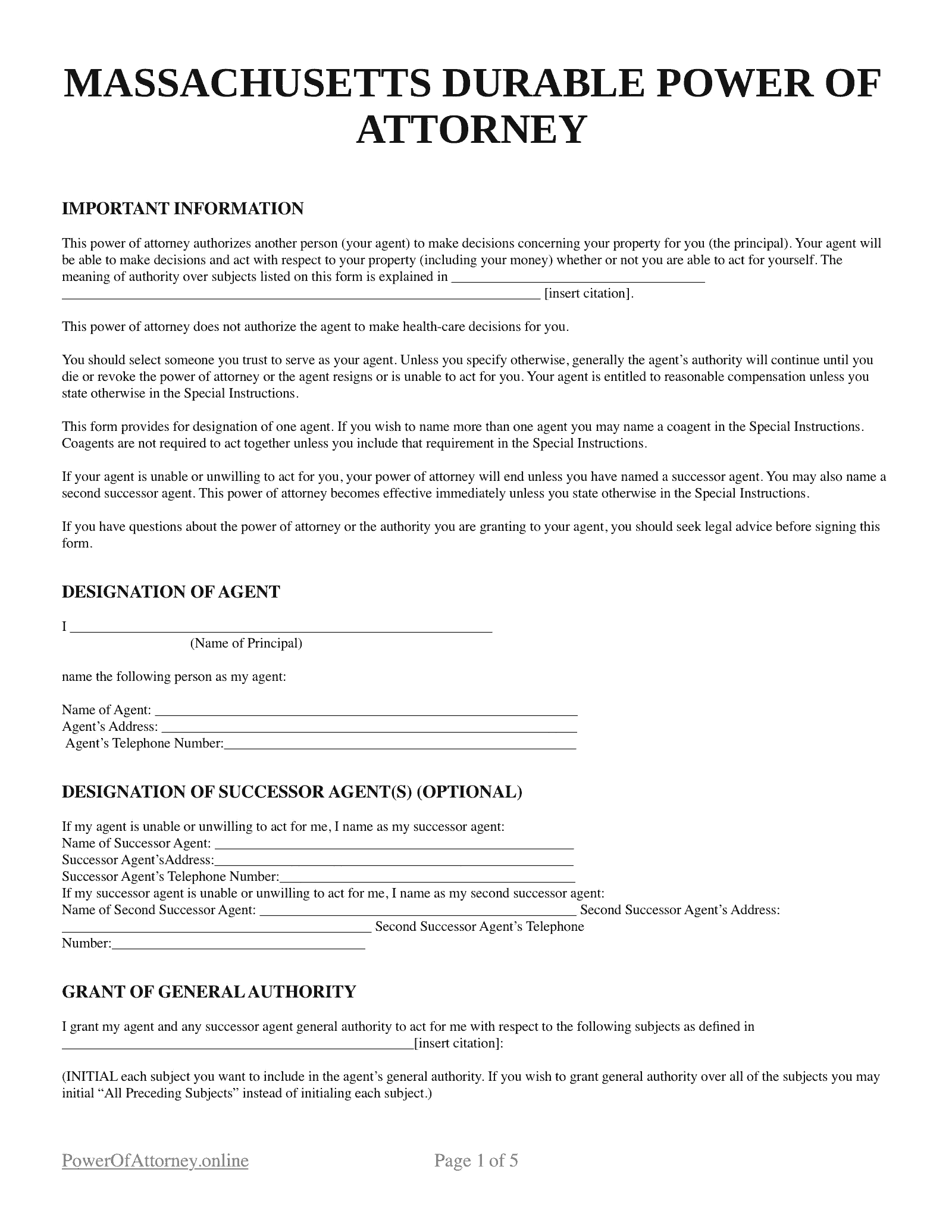Free Massachusetts Power of Attorney Forms
A power of attorney (POA) form gives one person (agent) the right to make legal decisions on another person’s (principal) behalf. It can be written for any purpose, including making healthcare decisions, managing assets, and more.
If you live in Massachusetts, there are laws about what must be included in a power of attorney form and precise rules about who can sign it.

Massachusetts Power of Attorney by Type
There are many different types of powers of attorney, and each has its own legal scope and requirements.
- Financial Power of Attorney - This gives your agent the power to make financial transactions on your behalf. The principal can revoke this authority anytime, regardless of their mental competence or ability to handle their finances. The POA terminates upon revocation, death, or incapacitation.
- Medical Power of Attorney - Sometimes referred to as a healthcare proxy, this POA allows the principal to appoint an agent who will make medical decisions on their behalf, such as whether or not to terminate life-sustaining treatment.
- Durable Power of Attorney - This allows the agent to make decisions if the principal becomes mentally incompetent or incapacitated. Without a “durable” provision, the authority of the agent will be revoked. A durable POA remains effective until it is revoked or upon death.
How To Get a Power of Attorney in Massachusetts
The process for obtaining a power of attorney differs slightly from state to state, but general details are the same. The person creating and signing a POA form must be mentally competent.
You can create a POA using a template available online or through an attorney. These templates have blanks in which to fill out the information about yourself and your agent.
You must get your POA notarized. While Massachusetts does not legally require this step, signing yours in front of a notary public is strongly recommended to ensure its enforceability in the future.
Massachusetts Power of Attorney Laws and Requirements
It is important to know the laws regarding a power of attorney in Massachusetts. Here are some relevant provisions according to the state:
An attorney in fact can carry out acts on behalf of the principal during any period when he is disabled or incapacitated—and those actions bind the principal and his successors as if he were competent (Mass. Gen. Section 5–502).
Except provided in subsections b and c and section 2–905(a), when a nonvested property interest or power of attorney is created is determined under general principles of property law (Mass. Gen. Laws Section 2–902).
(a) The principal's death does not terminate or revoke an attorney-in-fact's authority if they continue to act in good faith under the power.
(b) The disability or incapacity of the principal does not terminate or revoke an attorney-in-fact's authority if they continue to act in good faith under the power.
(c) Revocation of a written POA does not affect the authority under that document conferred on an agent who, without actual knowledge of revocation, continues to act in good faith or relies in good faith on acts taken by another under the revoked document (Mass. Gen. Laws Section 5–504).
FAQs About Massachusetts Power of Attorney Forms
Here are answers to some common questions about Massachusetts power of attorney forms so that you can start making informed decisions about yours: